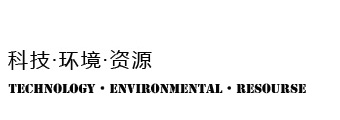Mandatory E-Waste Management System to Be Implemented In Singapore By 2021
On 6 March 2018, at the Ministry of Environment and Water Resources (MEWR) Committee of Supply (COS) 2018 debate in the Singapore Parliament, Dr Amy Khor, Senior Minister of State for the Environment and Water Resources, said that a mandatory e-waste management system will be implemented in Singapore by 2021.
A recent study by the National Environment Agency (NEA) found that around 11 kg of electrical and electronic waste (e-waste), equal in weight to 73 mobile phones, is disposed of per person in Singapore, amounting to more than 60,000 tonnes of e-waste annually. Currently residents place only around 6% of their e-waste in e-recycling bins. Though the recycling rate for businesses might be higher due to take-back arrangements between businesses, and manufacturers or importers, Dr Khor said much more needs to be done.
E-waste contains heavy metals and hazardous substances that can seriously harm the environment and public health if not properly handled. Some heavy metals can also be extracted from properly recovered e-waste and re-used, which is more sustainable than mining for virgin materials.
To deal with e-waste management MEWR will implement a mandatory e-waste management system by 2021. The system will ensure that electrical and electronic products are disposed of in an environmentally friendly way and allow for safe recovery of useful resources.
For a start, this system will cover 5 main categories of products, namely ICT equipment like mobile phones and computers, solar panels, batteries, lamps, and certain large household appliances like refrigerators, air-conditioners, washing machines and dryers. Together, these products constitute around 90% of e-waste in Singapore and pose more harm to the environment if not properly treated.
Singapore’s e-waste management system will adopt the Extended Producer Responsibility (EPR) approach, which is also implemented in other countries like Sweden and South Korea. Under EPR regimes, producers are given a significant responsibility for the treatment or disposal of post-consumer products. This could provide incentives to the producers to prevent wastes at the source, promote product design for the environment and support the achievement of public recycling and materials management goals
NEA will set collection targets for manufacturers and importers to take back a proportion of the products they put on the market. They will be required to work with NEA-licensed Producer Responsibility Organisations (PROs), which will organise the collection, transport and proper treatment of e-waste, and help the manufacturers and importers achieve their targets.
For example, PROs will work with large electrical and electronic retailers to set up in-store e-waste collection points. All retailers must also provide free one-for-one take-back service for their products.
Apart from the take-back service provided by retailers, Town Councils also provide bulky waste disposal services, which will ensure collected e-waste is properly recycled.







Leave a Comment